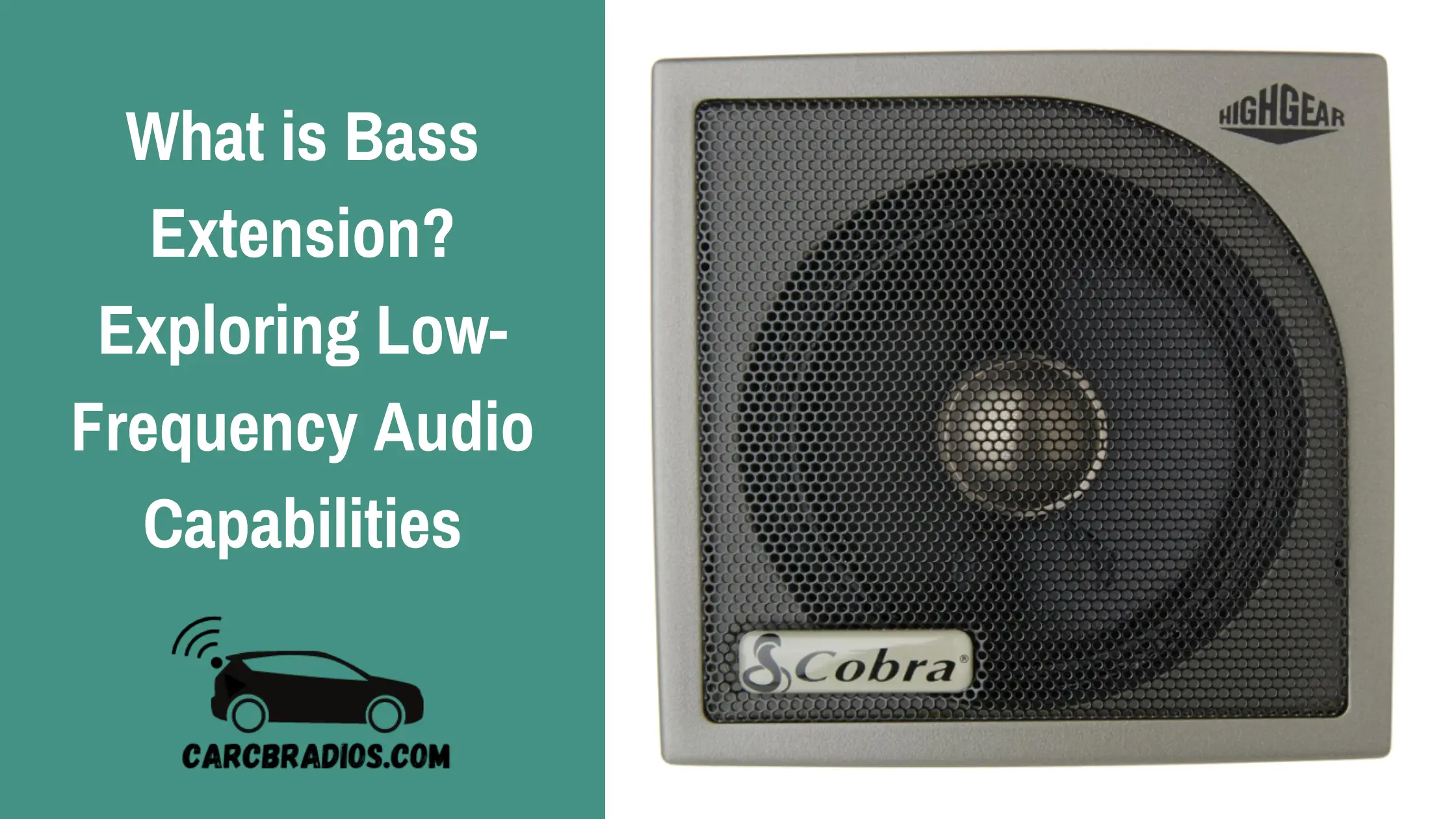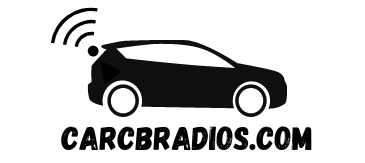By: Jeremy Neisser
As an audio expert, I have seen countless individuals struggle to achieve the desired bass quality from their premium subwoofers. Despite following proper subwoofer placement and impedance matching, they often overlook the importance of setting accurate bass or treble settings on their audio systems. Specifically, the topic of bass extension has become increasingly popular among audiophiles.
In this user-friendly guide, I will provide an introduction to bass extension and its significance in achieving optimal audio quality. Whether you are a seasoned audiophile or a beginner, this guide will provide valuable insights to help you enhance your audio experience. Let's dive in!
Key Takeaways
Bass extension is a crucial aspect of audio quality that is often overlooked.
Proper bass and treble settings are essential for achieving optimal audio quality.
This user-friendly guide will provide valuable insights to help you enhance your audio experience.
What Does Bass Extension Mean?
Bass extension is a crucial factor in determining the overall sound quality of an audio system. It refers to the lowest frequency a speaker or other musical instruments can reproduce accurately, measured in Hertz (Hz). A lower number indicates that the speaker can produce deeper bass sounds. For instance, a speaker with a bass extension of 20 Hz can reproduce lower sounds than one with a 30 Hz bass boost.
Enabling the bass extension feature on a subwoofer that is capable of reproducing the bass at 25 Hz will make it reproduce the bass to even 20 Hz without causing significant distortion. However, making the same subwoofer reproduce the bass at 15 Hz will result in a loud distorted sound.
In summary, bass extension is a crucial aspect of an audio system's sound quality, and it's important to understand how it affects the overall listening experience.
Difference Between the Bass & Treble Extension:
Bass Extension:
As an audio enthusiast, I know that bass extension is a crucial feature in audio devices, such as speakers or audio systems. It refers to the capacity of an audio device to accurately and powerfully reproduce low-frequency sounds. A good bass extension provides a comprehensive auditory experience, allowing you to feel the full impact of diverse lower frequencies, such as the rumble of an explosion or the depth of a musical bassline.
Subwoofers are the only audio devices that can produce these deeper tones that smaller speakers might not handle well. Therefore, it's essential to have a good bass extension to generate rich, deep tones, add depth to the music, and enhance the impact of sound effects.
Treble Extension:
In contrast to bass extension, treble extension is the capacity of an audio device to replicate high frequencies accurately. High frequencies, including the sharp notes of vocals or the high keys on a piano, contribute to the depth and richness of the overall audio experience.
A tweeter with excellent treble extension can correctly reproduce these high-pitched sounds, ensuring listeners can appreciate all the fine details and nuances in the audio.
In conclusion, both bass and treble extension are crucial features in audio devices that work quite the opposite from each other. A good bass extension provides a comprehensive auditory experience, allowing you to feel the full impact of diverse lower frequencies. At the same time, treble extension ensures that high-pitched sounds are accurately reproduced, enhancing the overall audio experience.
Importance of Using Bass Extension:
1. Enriching Depth and Realism:
I have found that using bass extension provides depth and realism to audio by reproducing low-frequency sounds that are essential in various forms of media. In music, it adds richness and fullness to the sound. In films, it enhances the perception of action and drama. By extending the lower end of the sound spectrum, the bass extension creates a more immersive and emotional experience, amplifying the impact of the audio content and making it feel more lifelike.
2. Captivating Musical Performances:
As I have discovered, bass extension breathes life into musical performances by reproducing the lowest frequencies, often felt more than heard. This profound, resonating effect gives depth and body to the music, enhancing realism and immersion. It underscores rhythm, intensifies emotional impact, and facilitates a deeper connection with the music. Hence, bass extension is beneficial in delivering captivating musical performances that resonate with listeners on a visceral level.
3. Immersive Home Entertainment:
In my experience, for home theater enthusiasts, the added tactile dimension to the soundscape creates a sense of being ‘in the moment’. Whether it’s the thud of footsteps in a suspense thriller or the resonating roar of a concert, the bass extension makes the experience visceral. It’s not just about hearing the sound, but feeling it, thus immersing you fully into the entertainment, making it more realistic and enjoyable.
4. Dynamic Range and Impact:
Finally, bass extension also effectively expands the dynamic range of audio by underlining the lowest frequencies. This produces a profound sense of realism and depth in music and sound effects. By emphasizing the intense and the subtle, bass extension reproduces the thrill of live concerts, the energy of bustling city streets, or the serenity of nature’s sounds. Bass isn’t just about ‘feeling’ the sound; it’s a conduit for conveying the nuance and emotion embedded in audio content.
Should You Use Bass Extension or Not?
When it comes to using bass extension, there are a few factors to consider before deciding whether to use it or not. As someone who has carefully analyzed the effects of bass extension, I recommend taking the following points into consideration:
Audio Content: The type of audio content you plan on playing is an important factor to consider. From my experience, bass extension works best with genres such as electronic, heavy metal, hip-hop, or orchestral music. However, this may vary depending on your personal music taste.
Intended Use: If you're setting up a home theater system for watching movies or playing video games, bass extension can contribute to a more immersive and cinematic experience by reproducing low-frequency effects.
Room Acoustics: The acoustics of your room can greatly affect the performance of your bass extension. In some rooms, bass frequencies may sound boomy or overwhelming, while in others, they may sound weak. In such cases, bass extension can help, but finding the right balance is crucial to prevent adverse acoustic effects.
Avoid Distortion: Overusing the bass boost or setting it too high can lead to distortion and muddiness in the sound. It's important to find a balance where the bass is present and impactful but doesn't overwhelm the rest of the audio spectrum.
Listening Volume: Your listening volume habits can also affect whether or not to use bass extension. If you enjoy listening at loud volumes, your subwoofer may produce loud rumbling bass. In that case, enabling the bass EQ boost feature can prevent excessive booming or distortion.
Overall, whether or not to use bass extension depends on various factors, including the type of audio content, intended use, room acoustics, distortion, and listening volume. By considering these factors, you can make an informed decision on whether or not to use bass extension.
What Is Dynamic Bass Extension?
Dynamic Bass Extension is a revolutionary technology developed by Klipsch & Kenwood. This technology is integrated into specific powered monitor models, and it enhances low-frequency sounds. Typically, low frequencies are less noticeable at lower volumes. However, Dynamic Bass Extension amplifies these frequencies, ensuring that even at softer volumes, you don't miss out on that rich, dynamic bass experience. This feature provides a full-bodied sound of higher volumes without disturbing the peace, making it an incredible addition to any sound system.
Frequently Asked Questions
What Is Kenwood Bass Ext?
Kenwood Bass Ext is a feature in Kenwood car audio systems aimed at enhancing the bass output. It amplifies low-frequency sounds below 63hz to match the 63hz EQ gain setting level, effectively "extending" the EQ band. This essentially creates a unique EQ band for the subwoofer's bandwidth.
Whether you choose to keep this feature on or off boils down to your personal listening preferences, the type of equipment you have, and how it's installed. The key is to listen and adjust: How does the sound appeal to you when the feature is on? Have you tried tweaking the "62.5hz" EQ band with the setting turned on?
My suggestion would be to first fine-tune everything else apart from the sub to your liking. Then, introduce the sub and make adjustments to ensure it blends well with the overall sound - this is more of a Sound Quality (SQ) approach. If you're strictly after powerful, earth-shaking bass, then your tuning should primarily focus on maximizing the subs output.
How does a bass booster extension affect the sound of my music?
A bass booster extension can improve the low-frequency response of your audio system, resulting in a fuller, more impactful bass sound. However, excessive use of a bass booster can lead to distortion and a loss of clarity in other parts of the music.
What Is the Difference Between Bass Extension & Bass Boost Extension?
Bass extension and bass boost extension are similar in that they both aim to enhance the bass response of your audio system. However, bass extension typically involves adding a physical extension to the speaker or driver to increase the range of low frequencies, while bass boost extension uses electronic processing to amplify the existing bass frequencies.
How Does Bass Extension Differ From Bass Response?
Bass extension refers to the range of low frequencies that an audio system can produce, while bass response refers to how well an audio system reproduces those low frequencies. Bass extension can be improved through the use of a bass extension device or by adding a subwoofer, while bass response can be improved through proper speaker placement and room acoustics.
What is a double bass C extension and where can I find one for sale?
A double bass C extension is a device that allows the player to extend the range of their instrument by adding a lower C string. These extensions can be found for sale at music stores or online retailers that specialize in double bass accessories.
Can You Use Bass Extension in Car Stereo?
Yes, bass extension devices can be used in car audio systems to improve the low-frequency response of the speakers. However, it is important to ensure that the device is compatible with your specific car audio system and that it is installed properly to avoid damaging your speakers.
How much does a double bass extension typically cost?
The cost of a double bass extension can vary depending on the brand, materials used, and other factors. On average, a double bass extension can cost anywhere from a few hundred to several thousand dollars.
How Do I Calibrate Crossover and Phase Settings for Optimal Bass Extension?
Calibrating crossover and phase settings for optimal bass extension can be a complex process that requires careful attention to detail. It is recommended to consult the user manual for your specific audio system or seek the advice of a professional audio technician.
What is the Q factor in relation to bass and audio?
The Q factor, also known as the quality factor, is a measure of how narrow or broad a frequency response curve is. In relation to bass and audio, a higher Q factor can result in a tighter, more focused bass response, while a lower Q factor can result in a more boomy, less controlled bass sound.

Hi & Welcome!
My name is Jeremy and I have been an avid car nut for many year. My first car was an 1987 Honda CRX. I put in my first Kenwood stereo, amp, 2 10" JLs and a CB Radio in it and have been an avid user of CBs and car radios for years. I'll do my best to share my tips, information and thoughts to help you with whatever question you might have, ABOUT ME
After I graduated from High School, I worked 5 years are Radio Shack and 3 years at Circuit City answering questions and helping customers with various electronics questions.


